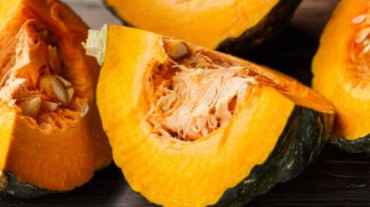
Vegetables come in different shapes, sizes and colours – green, yellow, red, blue, purple, white and more. They all have something to offer to us in terms of health. Collectively, the colourful diet is great for our body. That’s why people say, “eat the rainbow”. In fact, vegetables such as spinach, carrots, tomatoes and broccoli have all earned the label of superfoods. The common thing in these superfoods is beta carotene. Read on to learn more about the benefits of beta carotene!
Beta carotene is a natural pigment and antioxidant that belongs to a group of compounds known as carotenoids, explains Ekta Singhwal, Dietician, Ujala Cygnus Group of Hospitals, Moradabad, Uttar Pradesh. It is found in orange, yellow, red and sometimes green vegetables as well as fruits. Our body converts it into vitamin A, which is essential for our health.

Beta carotene can be beneficial for our health in many ways.
Beta carotene is crucial for maintaining good vision, as it is converted into vitamin A, which is essential for proper functioning of the retina.
Beta carotene acts as an antioxidant, helping to neutralise harmful free radicals in the body, which may reduce the risk of chronic diseases, including those related to the heart, says the expert.
Beta carotene contributes to a strong immune system, which is needed to enhance our body’s defense against infections and illnesses.
For a 2023 research published in the journal Brain Sciences, scientists studied the role of beta carotene in cognitive function, either alone or in combination with different dietary components. It was found that a combination of beta carotene with nutrients with higher antioxidant properties such as vitamins C and E, and zinc left an impact on cognitive function, which includes learning, language, memory and more.
While sunscreen is a must when it comes to your skin care routine, beta carotene may also protect against UV damage, reducing the risk of sunburn. It can also give your skin a healthy inside-out glow, something that we all want.

The recommended daily intake of beta carotene varies, but a typical guideline is around 3,000 to 6,000 micrograms for adults. Excessive intake of beta carotene, usually through supplements, can result in a condition called carotenemia, causing the skin to turn yellowish-orange. However, this is not considered harmful.
What about beta carotene supplements? Beta carotene supplements are generally considered safe when taken at recommended doses. However, high-dose supplements should be avoided by smokers, as they may increase the risk of lung cancer, says the expert. Some of the drugs or ingredients in products that you use for medicinal purpose may be affected if you have beta carotene supplements.
Select Topics of your interest and let us customize your feed.
PERSONALISE NOWIt is mostly used for the treatment of constipation, but it can also bring down levels of beta carotene.
If you take beta carotene with vitamins E and C, and selenium, the effectiveness of simvastatin and niacin may reduce.
Colestipol is one of the cholesterol lowering medicine that can reduce levels of dietary beta carotene to a great extent.
So, you just need to be cautious while taking the supplements to be on the safer side. If you don’t wish to take the supplement route, go for foods rich in beta carotene. The list includes vegetables and fruits such as carrots, sweet potatoes, pumpkin, spinach, kale, mangoes, apricots and broccoli.
Get Latest Updates on Healthy Eating, Nutrition, Recipes, Superfoods